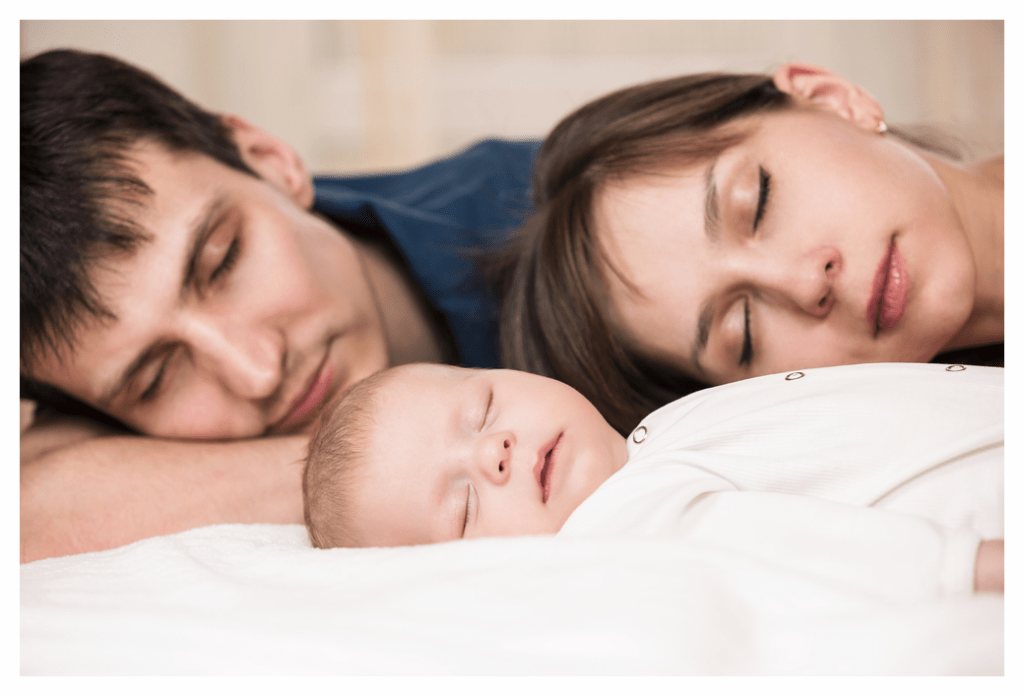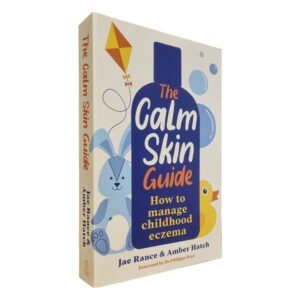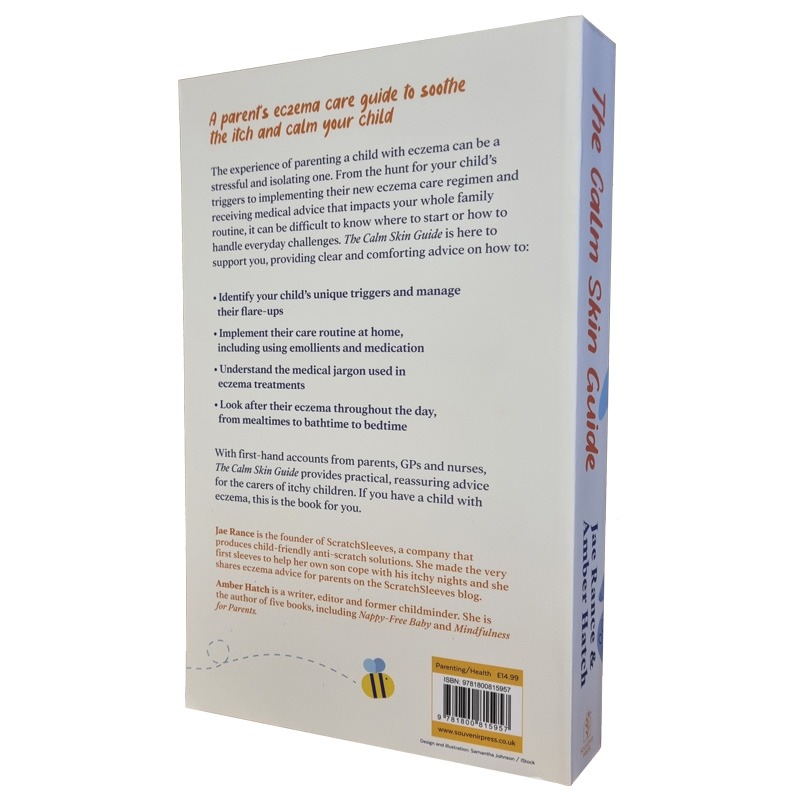Co-sleeping with an eczema baby: the pros and cons



The controversy over the benefits of co-sleeping waxes and wanes over the decades. Some swear by it, some advise against it. Currently, most child development experts see co-sleeping as an entirely personal decision. But if your baby has eczema there other things to consider when deciding if co-sleeping is for you. We look at into the pros and cons of co-sleeping with eczema babies and children.

What is co-sleeping?
Co-sleeping or bed-sharing is when babies or young children sleep in the same bed with one or both parents. It is standard practice in many parts of the world and is practiced by a significant minority in countries where separate cots are also used. Supporters of co-sleeping point to evidence of lower stress in both baby and mother, long-term emotional benefits for children who have co-slept, as well as the practical advantages of easier breast feeding and checking on your little one. Opponents emphasise the risks of over-heating and smothering as well as the possibility of the baby falling out the bed. They also point out the difficulty of persuading co-sleeping children to sleep in their own bed (yes, in our experience it can be tricky but not impossible!)
Safe co-sleeping
Sensible precautions for safe co-sleeping include sleeping on a firm mattress in a large bed, not using pillows, putting your baby in a sleeping bag on top of the duvet and either having your baby sleep between you or using bed guard. The Dr Sears website has really sensible, tried and tested advice on safe co-sleeping.
In the UK, the Department of Health advises that babies sleep in their own cots until they are six months old and that babies don’t sleep in the same bed as their parents if: they are premature; either parent smokes, has been drinking alcohol, has taken medication that could cause them to sleep deeply or suffers from sleep apnoea; or the parents are excessively tired.
Co-sleeping with an eczema baby
If your baby has eczema, co-sleeping has the additional advantage that you can reduce their scratching by holding their hands away from itchy skin. In addition, eczema babies often sleep lightly and rouse frequently in the night so them being in the same bed has obvious advantages for their parents. But there are other things to think about.
The pros:
- You can minimise scratching damage by holding their hands away. This obvious flip-side of this advantage is that you have to be awake to do this. Covering scratchy fingers with ScratchSleeves is an alternative effective option which allows parents to sleep better.
- Babies tend to sleep longer and cry less if they co-sleep – the incessant eczema itch can mean that eczema babies can find sleeping difficult but sleep is fundamentally important in their development. Co-sleeping may be an effective way to help you eczema baby sleep longer.
- Some research shows that babies who have co-slept are more self-confident as children, less likely to be afraid of sleep and had fewer behavioural problems. Given that eczema children can struggle with self-esteem and concentration, co-sleeping could be a way to support your child’s long-term emotional development.
The cons:
- Some children’s eczema is aggravated by heat and warmth of being snuggled up with both parents could actually be making your baby’s eczema worse. We minimised this impact by using a lightweight sleeping bag for our eczema baby, separate light weight duvets for ourselves (this left a duvet free space between us for you itchy boy), warmer PJs for ourselves, sleeping with a window open and having a large bed with a firm mattress.
- There are many more dust mites in adult bedding than a baby’s cot. House dust mites can irritate some baby’s eczema as well as causing breathing problems in some children, asthma and allergic rhinitis are commonly associated with eczema. Read more on house dust mites as a trigger for baby eczema here.
- Staying wake to stop you baby scratching means that you will get less sleep. Overtiredness can make it really hard to deal with any baby, let alone an eczema baby. And, as many parents (including us) will tell you, lack of sleep can really affect your driving. If you are co-sleeping to control your baby’s scratching, do make sure that you manage to take a nap during the day.
Alternatives to co-sleeping for eczema babies
A very similar concept to co-sleeping is placing the cot next to your bed. Specialist three-sided co-sleeper cots allow you to keep your baby within arms reach without the worry of the risks associated with co-sleeping. You’ll have the benefit of being able to hear and see your baby without exposing them to extra dust mites or excess heat, which could irritate their eczema and keep them (and you) awake all night.
An alternative solution to minimising night-time scratching damage is to use ScratchSleeves. Many of our customers have noticed major improvements in both their baby’s and their own sleep in the first few days of using them.
As with all things related to eczema, every child is different so it will be a case of trial and error to find out what works for your family. If you decide to co-sleep with your baby then never do it in an armchair or sofa, make sure you’re always in a bed no matter how tired you are. If you don’t decide on co-sleeping then make sure you give your baby plenty of affection and closeness at other times. Co-sleeping is a very personal choice, but always be very careful and consider all the risks!
As well as sharing our experience of bringing up an eczema child (and favourite allergy-friendly recipes), ScratchSleeves also manufactures and sells our unique stay-on scratch mitts and PJs for itchy babies, toddlers and children. We now stock sizes from 0-adult in a range of colours. Visit webshop for more information.
The Calm Skin Guide
Love our blog? It's also available in book format with:
- First hand accounts from parents & medical professionals
- Easy navigation
- Comprehensive index
- Additional material
Signed copies available at no extra cost
Written by:
Interesting article? Don't keep it to yourself...
Read next...
You may also find helpful...
Quick buy


Multi Buy Discount

Spend between £30 - £60 and save 5%
Spend between £60 - £120 and save 10%
Spend over £120 and save 15%
Discount automatically applied at checkout
No Quibbles Guarantee

ScratchSleeves abide by a no quibbles guarantee.
Free UK Postage

Free packing and postage on all UK orders. For overseas orders to Europe postage is from £3.50, to USA is £6.50 and to the rest of the world, from £3.75.






